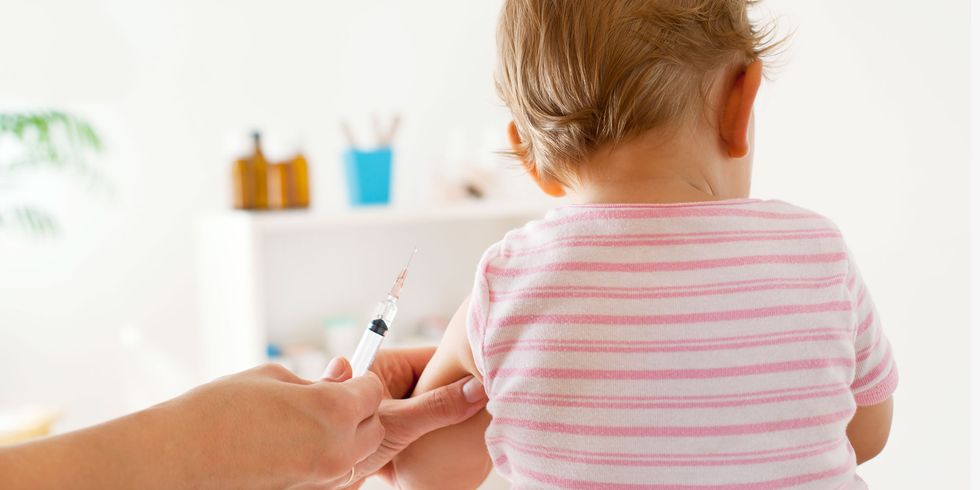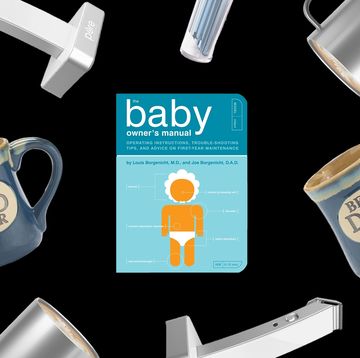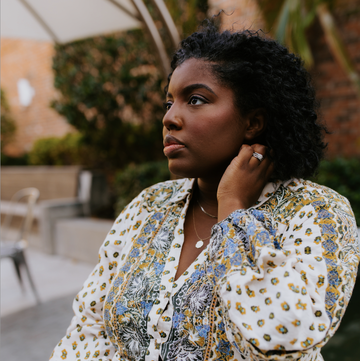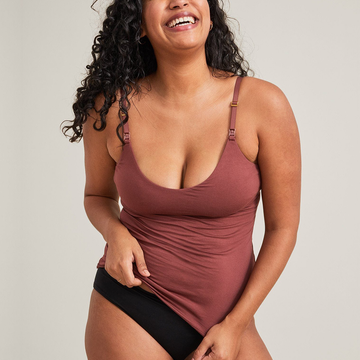When I first became a parent, I joined every mommy group I could find. I was nervous about the little life that was now my responsibility and looking for my tribe. At first, it was great. I went to playdates, shared parenting jokes online, and found a place where I could ask questions without worrying about being the annoying mom. Over time, though, that honeymoon phase faded because in each group, eventually, there would be a discussion about medicine and vaccines, and some members of the group, albeit generally a small number, would share that they had decided not to vaccinate, or were seriously questioning vaccine safety or efficacy.
Now, if you were to ask any of my friends about me, they’d tell you, I’m one of the most supportive parents out there. I believe in uplifting instead of judging, encouraging instead of tearing down. For almost every parenting decision out there, I can either relate or at the very least, empathize with your reasons. Parenting is hard and we don’t get a handbook. I get it. And while I don’t put on my sanctimommy hat about disciplining philosophies, diapering choices, or how you’re feeding your baby, my judgment nerve gets a serious workout when it comes to parents who choose not to vaccinate.
I’m not referring to those who can’t vaccinate their children because of documented, verified, medical reasons. I mean the parents who are purposely turning down vaccines for a myriad of non-medical reasons. I know it’s a touchy subject, but it’s time to stop acting like not vaccinating is a parenting decision that shouldn’t be judged and call it out for what it is. It’s selfish.
I am the creator and lead of Immunize Texas, a grassroots community group dedicated to supporting pro-vaccine legislation. I started this group because in addition to getting tired of seeing the excessive amounts of anti-vaccine rhetoric online, in parenting groups, and elsewhere, I also became aware of the declining vaccination rates and resulting increase in vaccine-preventable disease cases. And now that I am a parent to a 6-month-old in addition to a son who will be starting kindergarten soon, the fight means everything to me.
I’ve heard every excuse in the book from parents who don’t vaccinate their kids for non-medical reasons, and none of them are valid.
Let’s start with the basics. Vaccines are safe. Vaccines are effective. Vaccines do not cause autism. There have been plenty of articles and studies published supporting these conclusions. Like this one. And this one. And this one. Yet plenty of parents insist that the large number of scientific studies out there establishing the safety and efficacy of vaccines cannot be trusted. Do they really believe that their degrees from Google University can uncover something that the majority of the scientific community has missed or covered up? I have two degrees in biology and I cannot even come close to that distorted level of confidence in my immunology expertise. (And by the way, these misinformed parents seem totally unconcerned with the message they are sending to people on the spectrum: “I’d rather risk my child contracting a debilitating or fatal disease than take a chance that he’ll be like you.”) These parents are also encouraging the diversion of money away from research that could possibly identify the real causes of autism and improve treatment, and would rather see it wasted on a debunked vaccine-autism connection.
There are also parents who know vaccines work but don’t want to risk any side effects, despite the fact that vaccines are constantly monitored for safety. These parents are selfishly relying on herd immunity, a form of community protection against vaccine-preventable diseases that is achieved when a critical percentage of the population have been vaccinated. For instance, with a highly contagious, devastating disease like measles, experts estimate that 95 percent of the community must be immunized to prevent an outbreak. My guess is, based on demographics data showing that a majority of parents who don’t vaccinate are white and wealthy, that this is not the first privileged move they’ve made. These parents assume enough other people will get vaccinated and therefore their own kids will probably be fine if they don’t. They’re willing to chance it because they either believe their children are better than others and won’t get sick, or their money can help them buy the best medical care and successfully treat any vaccine-preventable disease. However, while they are comfortable with taking the risk with their own children (already an example of unbelievable hubris), they are also putting everyone else at risk of getting sick.
And then there are the parents who want to paint this as a parental “choice” issue, as if this is about giving parents more discretion and not total opposition to vaccines. I believe they’re just anti-vaxxers trying to make their cause sound less polarizing, but even if we’re going to give them the benefit of the doubt that it’s truly about choice, they seem to ignore the fact that choices have consequences and the choice not to vaccinate can hurt me, my family, and my loved ones. Their choice is selfish and it is damaging our public health.
Here in Texas, we have seen a 19-fold increase in filed vaccine exemptions in the 13 years that have passed since the non-medical exemption was created, allowing parents to send their children to school without receiving all the required vaccinations simply by citing “reasons of conscience.” And we’re seeing the effects. Measles and whooping cough are just a few examples of the diseases that are experiencing a resurgence when they should be on their way to being eradicated.
As parents who support evidence-based science, we need to get involved politically so we can turn this ship around. There are bills being filed all over this country that will help put us further on the path of making diseases like measles a thing of the past. Immunize Texas, for instance, is currently supporting companion Parent’s Right to Know bills that will make the exemption rates publicly available for individual schools. As it stands, I can only find out the exemption rate for my school district, which encompasses 130 schools. This doesn’t help me in knowing whether my son’s kindergarten will be safe for him, or whether I need to worry that he will bring something home and infect his baby brother, who won’t be old enough to receive even his first MMR shot by the time the first day of school rolls around. I can only imagine how important this information will be for my friends who have children with compromised immune systems. While these bills may seem like common sense to most of us, some of the parents I described are doing their best to make sure they don’t see the light of day.
We also have to fight bad bills, like the ones that make vaccine exemptions easier to obtain or that aim to provide parents with confusing information that could cast vaccines in a negative light. Here in Texas, a bill was filed that would require that pediatricians hand out a list of ingredients to every parent before administering a vaccine. Federal law already requires that pediatricians hand out a Vaccine Information Statement put together by the CDC that describes risks and benefits of vaccinating in an easy-to-understand format, so providing this ingredients list is redundant. The larger concern, though, is that providing this list without any context or explanation will create unjustified feelings of fear because parents misunderstand what they’re reading. Bills like this one, while often touted as a way to promote parental “choice,” are really about dissuading people from getting their kids vaccinated, thereby putting the rest of us in danger.
The time for live and let live has passed. The decision to vaccinate or not vaccinate is not like the other decisions we make as parents. Most parental decisions don’t affect other families around them or threaten their children’s health or lead to a life-and-death situation. Ignoring the decrease in vaccination rates will only lead to more vulnerable people getting sick. The only way to protect yourself and your loved ones from vaccine-preventable diseases is publicly supporting vaccines and advocating for commonsense pro-vaccine legislation. I invite you to join me in speaking up, loud and clear, for vaccines.












